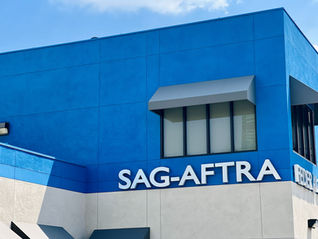Email: info@josephbonner.com | New York +1 917 409-6622 | London + 44 20 37690178 | Canada + 1 647 5601843

The Harmful Influence of Fortune Telling and Tarot Cards on Society
Fortune telling, the practice of predicting future events, has captivated humanity for centuries. While it may seem enticing to peek into the unknown, the proliferation of fortune telling methods, including the use of tarot cards, can have numerous adverse effects on individuals and society as a whole. This article aims to shed light on the harm done by fortune telling and the use of tarot cards to foster a better understanding of their negative consequences.
Exploitation and Misinformation
One of the primary concerns with fortune telling is the potential for exploitation. Many fortune tellers take advantage of vulnerable individuals, promising answers or resolutions to their life dilemmas. This exploitation often occurs through charging exorbitant fees for services or utilizing manipulative tactics to foster dependence on their services, preying on people seeking comfort or guidance.
In addition, the validity of fortune telling is based on subjective interpretations, leading to misinformation and misleading individuals. Tarot cards, for example, rely on the reader's interpretation of symbolic imagery and personal biases. This subjective lens can perpetuate false hope, causing individuals to make important life decisions based on unreliable future predictions rather than critical thinking and personal agency.
The Limitation of Personal Growth
The reliance on fortune telling methods, such as tarot cards, can hinder personal growth and self-reliance. By seeking solace in external sources for answers or guidance, individuals may neglect their innate abilities to navigate life's challenges, make decisions, and develop their intuition.
Fortune telling tends to promote a passive approach to life, fostering a sense that destiny is predetermined and outside our control. This mindset can be emotionally disempowering, leading individuals to underestimate their ability to create their own path and overcome obstacles through personal effort and resilience.
Undermining Critical Thinking and Rational Decision-Making
Fortune telling and tarot card readings often lack scientific basis and critical evaluation, promoting a belief in the supernatural and magical thinking. This undermines the importance of critical thinking, evidence-based reasoning, and scientific methods, which are essential for a rational society.
When people rely on fortune telling as a means of decision-making, they may forgo logical reasoning, objective evaluation, and considering multiple perspectives. This can have significant ramifications, leading to poor decision-making, impulsive actions, and detrimental consequences for both individuals and society as a whole.
The Perpetuation of Stereotypes and Stigmatization
The use of tarot cards and fortune telling can also perpetuate stereotypes and stigmatization. Individuals seeking fortune tellers' services often belong to marginalized or minority groups who are more likely to encounter difficulties and hardships. Rather than addressing the complex socioeconomic factors contributing to their struggles, fortune telling can provide convenient but misleading explanations, potentially reinforcing stereotypes and maintaining marginalization.
Furthermore, fortune telling's association with superstition and the occult can lead to societal stigmatization. This stigma may negatively impact those who practice or are associated with these practices, further marginalizing them in society and hindering their ability to participate fully and equally.
While fortune telling and the use of tarot cards may appear intriguing, it is crucial to recognize the harm they can inflict on individuals and society at large. Exploitation, misinformation, reliance on external sources, undermining critical thinking, and perpetuating stereotypes are just a few examples of the harmful consequences.
Instead of placing our faith in fortune telling, it is essential to embrace critical thinking, empower individuals to make informed decisions based on evidence and reason, and promote personal growth and self-reliance. These practices will enable individuals to navigate life's challenges with resilience, while fostering a society that values rationality, equality, and the pursuit of truth.






































































































